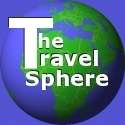This article is written in its entirety by my good friend Diane Fesler-Macaluso
Teaching Toolbox: Diagnosis and Assessment
Abstract
This paper provided a discussion about what kind of special education teacher the author would like to be one day. Understanding the special education teacher must be fully competent in evaluation and assessment the paper addresses the strengths and weakness of assessment, what if assessment results are inaccurate and some causative factors to faulty assessment results. Additionally, biased assessments are discussed as a way for the special educator to be cognizant of developing strategies to overcome bias in evaluation. The final section of this paper is a self-reflection on the author’s ideas on how assessment will be used in teaching, and the identification of current strengths and weakness in terms of diagnosis and assessment. A professional growth plan of action is developed designed to overcome weaknesses in evaluation administration and implementation.
What kind of special education teacher would you like to be and what kind will you likely be?
Demonstrating a working knowledge of the process of evaluation and assessment is imperative for the special education teacher. Being cognizant of the potential hazard of biased testing procedures or in the selection of the type of assessment given to the student equips the teacher with skills necessary to find the best possible determination of a student’s ability to learn. The special educator able to balance evaluation, assessment, the creation of the Individualized Educational Plan while teaching and modifying curriculum is one who exhibits a professional demeanor and what's more, shows compassion for the student’s served. This teacher must be able to build an alliance with families, colleagues, bureaucracy of the public school system and the community. For the excellent teacher, work does not end at the end of the school day. The business of educating the public is ongoing and those working in the field of special education are the greatest advocates for persons with disabilities.
What is the value of assessment and what are weaknesses of assessment?
Evaluating as assessing students for special education is vital to student achievement in that a determination of eligibility for special education, goals and objectives are derived from the assessment process. Eligibility for special education must comply with the Individuals with Disability in Education Act (IDEA) which outlines thirteen different disability categories a student may be found appropriate to receive services (Kupper, 1999). Due to biases in testing as denoting one of the weaknesses of testing when given a standardized test, IDEA has determined the evaluation and assessment procedures must be given in the child’s native language or in the student’s typical mode of communication. Additionally the tests cannot inhibit the accuracy of the results on the basis of racial, cultural or disabling conditions (1999). Furthermore, Research warns against using only standardized testing to qualify learning disabled students because non-learning disables students often show a discrepancy between academic performance and intellectual abilities (Fowler, R., 2010).
Student outcomes in terms of inaccurate assessment results
Many times a student is believed to have a learning disability by either the parent or one or more school staff member. Without accurate evaluation the student will be served by those using emotion, building academic program based on hopes and fears, rather than objectivity (Wright, & Wright, 2007). An unbiased and accurate assessment is crucial to the foundation of the correct course of instruction. Inaccurate assessment results are contraindicated in deciding the proper actions to take on behalf of the student. Tests administered by those not properly credentialed or trained or that are biased against the culture or disability of the student will not yield accurate results and in fact are illegal. As the court case Diana vs. the state of California revealed in 1970 when children who were Spanish speaking were labeled mentally retarded because the tests given were in English and the students were not able to understand the questions. Many students were wrongfully placed in special education classes, some for years, when in fact they were not mentally retarded (n.d. http://www.ldldproject.net/legal.html).
What would cause inaccurate assessment results?
Inaccurate assessment results may come from other places than a linguistic difference between student and test modalities. Structured observations completed by those who maintain a biased belief about the student’s performance may taint the final outcome of an informal assessment. Students of foreign decent may understand the English language enough to respond to questions on an evaluation, but the frame of reference these individuals possess will likely affect the outcome of the assessment. In another scenario, an evaluator determines the student has an above average intellectual ability even though his or her reading level is below grade level school personnel and parents may think of the student as lazy or unmotivated to learn. Such a student may be pressured to just “work harder.” Despite all of the effort the student makes he or she still cannot do the work required. Because of prior biased beliefs on the part of the educational professionals the student is not given the appropriate diagnostic tests and the student is labeled lazy instead of having dyslexia (Wright & Wright, 2007).
How would I know if a test is biased? What adjustments could be made if it were know that test results were the consequence of bias?
For the evaluator selecting the appropriate test is a key component in beginning the process of evaluation. Understanding the parameters and limitations of the test is an important aspect of test selection. By carefully planning the entire evaluation process embedded with formal and informal assessments reaching across all domains of intellectual, social, familial and extended school personnel would be the preferred plan of action Sales & Fox, 1982).
What are my strengths and weakness in terms of diagnosing and assessing special students and their needs?
Currently the author of this paper has limited experience with intellectual testing protocols and procedures. Serving as an Occupational Therapy Assistant for 17 years in the public school provided a rich opportunity to learn and administer evaluations designed to assess motor, sensory and visual motor discrepancies. These tests were standardized and gave standard deviation, subtest and composite scores similar to IQ scoring. Providing information as part of the multidisciplinary team assisted in the basic knowledge of interpreting IQ scores as reported by the school psychologist or special education teacher. Gaining greater proficiency in administering and interpreting IQ tests is one of the objects for personal development this author deems important.
How do I see assessment fitting into my teaching goals and student expectations?
Developing and maintaining the ability to thoroughly evaluate the student is critical to interpreting student ability and sets the foundation for developing the Individualized Educational Plan, writing present levels of student academic, social/behavioral and functional performance for the annual goals. Demonstrating a proficient knowledge of formal and informal assessment and writing the evaluation report is considered an integral part of the special education teacher’s job.
Plan Implementing for Continuing My Professional Development in the Field of Special Education
To accomplish the personal goal of proficiency in evaluation testing and assessment methods, this author has set up a schedule with two school psychologists and two special education teachers to observe testing procedures for evaluations at the preschool, high school and transition levels prior to beginning student teaching. A school psychologist has been selected to mentor the writer in procedures and techniques for the purpose of assisting this new special education teacher to be as prepared as possible to evaluate students. Additionally, maintaining membership in three professional associations is considered an appropriate method to keep abreast of current assessment information. The associations are: National Association of Special Education Teachers (NASET), The Council for Exceptional Children (CEC), and the Washington Occupational Therapy Association (WOTA).
Teaching students with special needs is a privilege that comes with enormous responsibility. The course Diagnosis and Assessment in Special Education has provided the Masters level student with an understanding in the basic premise, evaluation procedures and implementation of information gathered by informal and form an assessment. Having a working knowledge of what each evaluation is designed to measure and more importantly understanding the students’ needs is a skill set the new educator will gain competence in as more practice is available. Using the correct assessment, knowledge of any testing bias and what the strengths and weaknesses of tests are give the new teacher and the student an advantage. No teacher is perfect. Being aware of one’s own strengths and weakness is a positive attribute for all professionals. Accompanying the recognition of a specific weakness must be the plan to overcome and gain competence for the sake of the students served in special education.
Friday, August 20, 2010
Subscribe to:
Post Comments (Atom)
 RSS Feed
RSS Feed Twitter
Twitter















0 comments:
Post a Comment